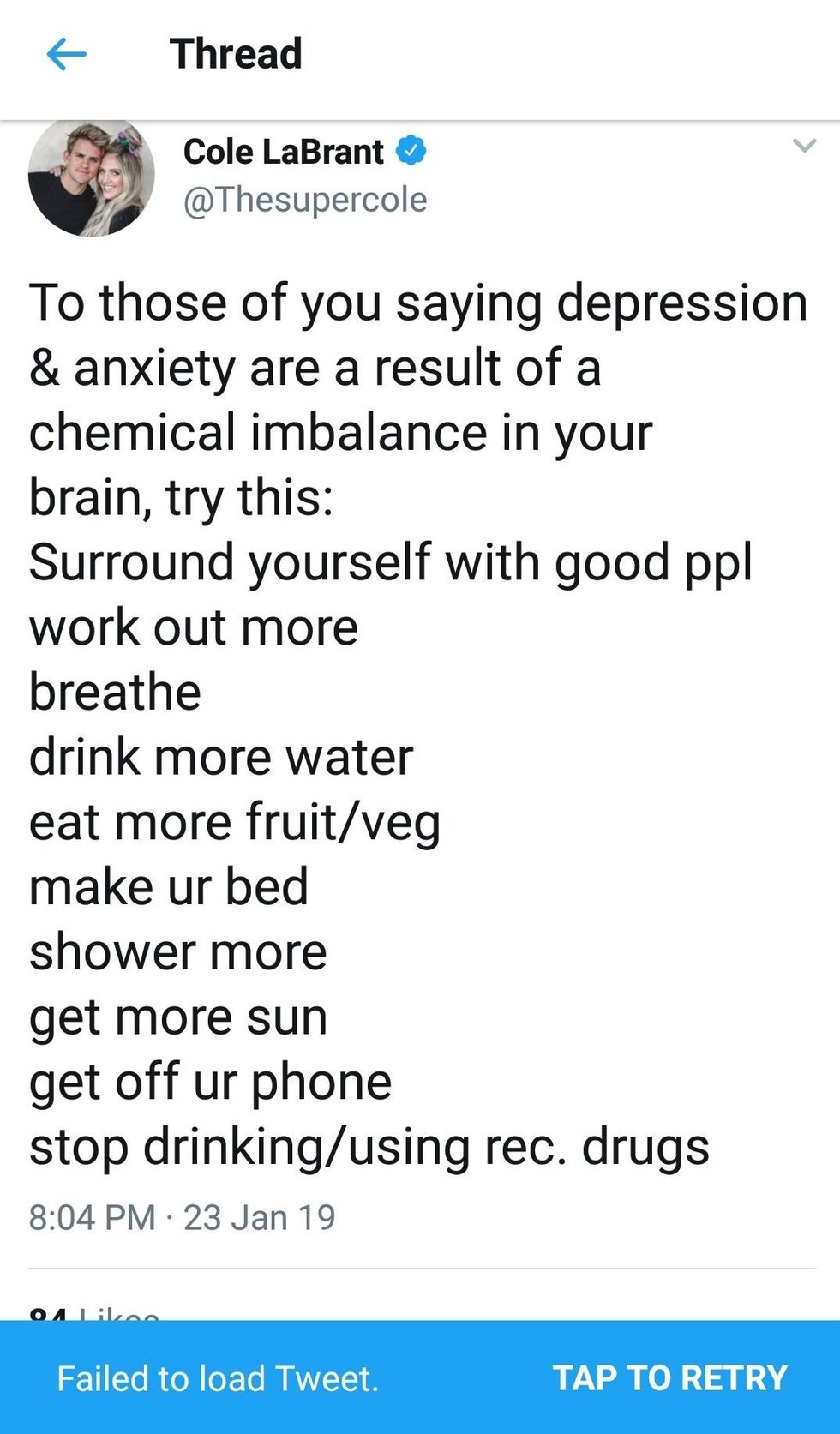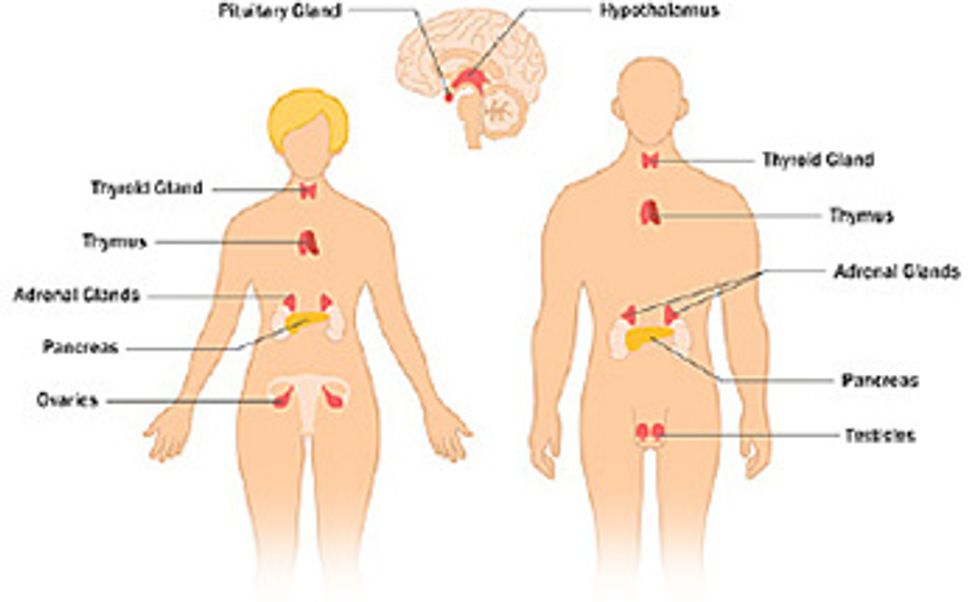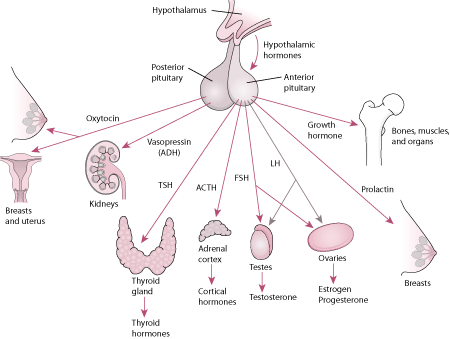Cole LaBrant's most recent tweet on mental health struck some cords with those who have a mental health issue. Many have already tweeted back and have spoken about how that tweet made them feel. Living with a mental illness is not a trend, it is not a fashion statement, it is something those who have one would never wish onto someone else.
While he meant no harm by the tweet, he seems to not fully understand that mental health problems can be caused by chemical imbalances in the brain and body. While the activities he listed can help to elevate some symptoms from clinical depression and anxiety, they should not be used as a "cure." It works due to the body producing and releasing endorphins in the body when you are doing physical activity. To the body, these endorphins are like a drug, since they bind to opioid receptors and can help to alleviate the feeling of pain and increase one's mood. It is not uncommon for a therapist or a psychologist to recommend exercising and a healthier living to those with diagnosed clinical depression and anxiety due to the increase of endorphin production. Though they still recommend continuing with therapy and may still prescribe medications to help those along their journey.
Now, let's talk about hormones in mental health.
Our body functions are primarily controlled by our brain and the hormones released from different endocrine organs. The main one we are focusing on is the pituitary gland.
This gland can be found near the hypothalamus. It is broken up into two parts: the anterior pituitary gland and the posterior pituitary gland. The anterior pituitary gland creates hormones and communicates through the blood vessels. The posterior pituitary gland stores specific hormones and will use neural signaling to tell other glands to produce a specific hormone. This gland produces many different hormones that will eventually affect the downregulation of other hormones.
While studies are still new and are continues being researched, some are finding a connection between hormone imbalances in the pituitary gland and mental health. this is most likely due to the hormones prolactin and cortisol and how they interact with the brain. Some studies have found that those who have higher levels of prolactin production tend to have higher anxiety levels. Also, other studies have found those mental health issues tend to have higher levels of cortisol. The more that researchers are able to understand and test new ways to catch earlier signs of mental health disorders can lead to new ways of diagnosis.
Next, a quick discussion in genetics and mental health.
Mental health disorders can be genetic (along with environmental factors that can come into play)! The hormones mentioned above are essentially regulated by your genes. Any mutations in the genes that code for those hormones can cause an imbalance. Many studies have linked different mental health disorders to genetics such as ADHD, bipolar disorder, depression, and others. Remember though, just because your parent may have the disorder, it does not mean you automatically get it, but it does put you at a greater risk then whose parents do not have a mental health disorder.
The world of genetics is an extremely new field (with the genetic code only being cracked just over 50 years ago), with new techniques being created every year researchers are getting closer and closer to learning more about the genetics of mental health.
Everyone's mental health is different. One person's anxiety and depression are not comparable to another person's anxiety and depression. One may find aid and help in what Cole mentioned, others may require more clinical help, and that is okay. Never treat mental health as if it is something that is insignificant that can always be treated with me-days and self-care. For many, it is biological along with environmental. So, yes, anxiety and depression CAN be a result of chemical imbalances in the brain and body, but it does not make you any less of a person. You are loved and your mental health is valid.














 Photo by
Photo by 








